A product that recalls flavors and traditions of the past
The company produces two different extra virgin olive oil:
Arillo and Fior di Olive, both oils rich in brightly colored polyphenols with an intense and spicy flavor.
- The cultivation of our olive trees insists on 3 different production areas within the Hyblaean Mountains
- The cultivation extends for a total of almost 20 hectares with about 4000 olive trees between secular and new plantations
- The farm is certified organic (EC 834/2007) and cultivates lands in compliance with the agro-ecosystem and water resources, monitoring the cultivation environment to reduce the presence of pathogens and parasites.
- The company applies a limited use of copper in compliance with EU Reg. No. 1981/2018, introducing the limit of 4 kg / year / ha

- The olives are harvested early from September to the end of October.
- We collect separately each cultivar, identifying for each of them the suitable maturity for the organoleptic and sensorial qualities.
- The olives are brought to the milling farm where the processing of production always takes place within 4-12 hours from collection.
- The harvest is carried out both by hand and by means of mechanical facilitators and shakers that respect the tree and allow perfect fruit integrity. These two rules guarantee a minimum acidity, a great aromatic profile and high nutritional properties.

- The olives are then washed with a system that combines air and water, which perfectly cleans the drupes of any impurities, limiting impacts and therefore any dents that would damage the olive before pressing.
- By pressing, the olives are crushed in order to obtain a homogeneous paste, with the aim of breaking the vacular cells where the oil contained is condensed in micro-drops.
- The crushed olive thus obtained is slowly stirred in kneading tanks in order to break the water-oil emulsions that formed during the pressing and thicken the oil droplets in larger and larger drops. The pasta thus passes to the separation phase, with the aim of dividing the oil from the water and the pulp. Thus a product is obtained where the main aromas, bitter and spicy, are preserved. remembering in the oil the tasting of a raw olive.

- After being filtered to completely eliminate the last impurities that would ferment and compromise the quality of the oil, the oil is stored in stainless steel containers, under nitrogen to cancel oxidation and at controlled temperature, until bottling.


CULTIVATION
- The cultivation of our olive trees insists on 3 different production areas within the Hyblaean Mountains
- The cultivation extends for a total of almost 20 hectares with about 4000 olive trees between secular and new plantations
- The farm is certified organic (EC 834/2007) and cultivates lands in compliance with the agro-ecosystem and water resources, monitoring the cultivation environment to reduce the presence of pathogens and parasites.
- The company applies a limited use of copper in compliance with EU Reg. No. 1981/2018, introducing the limit of 4 kg/year/ha

COLLECTION
- The olives are harvested early from September to the end of October.
- We collect separately each cultivar, identifying for each of them the suitable maturity for the organoleptic and sensorial qualities.
- The olives are brought to the milling farm where the processing of production always takes place within 4-12 hours from collection.
- The harvest is carried out both by hand and by means of mechanical facilitators and shakers that respect the tree and allow perfect fruit integrity. These two rules guarantee a minimum acidity, a great aromatic profile and high nutritional properties.

OIL PRODUCTION
- The olives are then washed with a system that combines air and water, which perfectly cleans the drupes of any impurities, limiting impacts and therefore any dents that would damage the olive before pressing.
- By pressing, the olives are crushed in order to obtain a homogeneous paste, with the aim of breaking the vacular cells where the oil contained is condensed in micro-drops.
- The crushed olive thus obtained is slowly stirred in kneading tanks in order to break the water-oil emulsions that formed during the pressing and thicken the oil droplets in larger and larger drops. The pasta thus passes to the separation phase, with the aim of dividing the oil from the water and the pulp. Thus a product is obtained where the main aromas, bitter and spicy, are preserved. remembering in the oil the tasting of a raw olive.

STORAGE AND BOTTLING
- After being filtered to completely eliminate the last impurities that would ferment and compromise the quality of the oil, the oil is stored in stainless steel containers, under nitrogen to cancel oxidation and at controlled temperature, until bottling.
Our NUMBERS…
0
Hectares
0
Olive Trees
0
Liters



